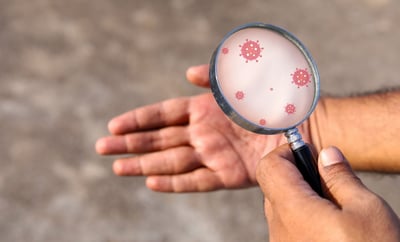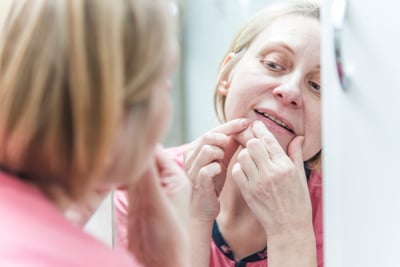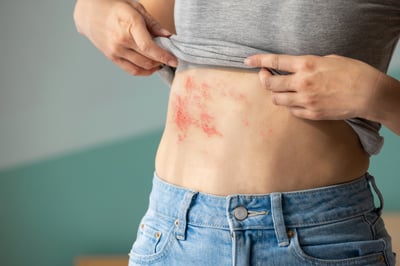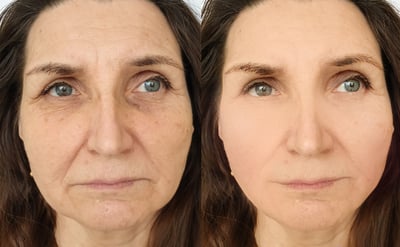
Life with infants is unpredictable. One of the many unpredictable moments includes infant skin problems. From odd rashes to red bumps and dry skin, these skin problems seemingly pop up out of the blue.
“Neonatal skin conditions tend to develop suddenly. To any parent, rookie or pro, this can be unnerving,” stated Dr. Susan Keiler, board-certified dermatologist and pediatric dermatologist with Forefront Dermatology. “Thankfully, most of the skin conditions are common and easily treatable.”
Cradle Cap
“Cradle cap is a neonatal form of dandruff, also known as seborrheic dermatitis,” noted Dr. Keiler. “It is extremely common, tends to occur in the first 3 months, and frequently resolves on its own by 6-12 months of age. Over-the-counter medicated shampoos with selenium sulfide, coal tar, or zinc pyrithione may help to reduce symptoms. It is also ok to leave a mild cradle cap untreated if your child is not uncomfortable. If you are noticing cradle cap worsening with time, contact your board-certified dermatologist to see if a prescription cream or shampoo is needed.”
Diaper Rash
Diaper rash can appear as red patches, sores, or bumps on the baby’s buttocks and genital area. “Diaper rash can be due to yeast infection, irritation from exposure to stool and urine, and less commonly, due to an allergy to a product being used or an intrinsic medical condition such as psoriasis” stated Dr. Keiler. “Additionally, harsh soaps and sweat can lead to diaper rash. To prevent diaper rash, change diapers as soon as your child urinates or has a bowel movement. Thoroughly clean your child’s bottom with an unscented gentle cleanser/wipe and apply petroleum jelly or diaper cream to speed up healing.” If the rash doesn’t get better within a few days, spreads further, becomes oozy, or if your baby develops a fever, it’s time to see a doctor.
Neonatal Acne
According to the American Academy of Dermatology, approximately 20% of newborns develop newborn acne. It is common to develop around 2 weeks of age and can last until 6 weeks of age. According to Dr. Keiler, if your baby has neonatal acne you will usually see breakouts on the cheeks, nose, forehead, chin, scalp, neck, back, or chest. Acne that develops after 6 weeks is referred to as infantile acne and can occur between 3 and 6 months, but since this is a less common condition, it is important to have your child evaluated to rule out any other health issue.
When it comes to infants, less is more is an ideal skincare plan to follow. Infant skin is more sensitive than most adults. Keep baths short and use products that are fragrance-free and hypoallergenic. If your child has a skin condition that is not improving or concerns you, do not hesitate to meet with a board-certified dermatologist at Forefront Dermatology to rule out any additional problems. Click here to find the Forefront dermatologist nearest you.





